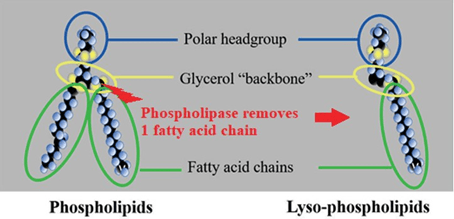作者:Martin Guerin、Marleen Dehasque 和 Waldo G. Nuez-Ortín
过去两年的大流行扰乱了大多数国家的社会和经济生活,也改变了商业行为。
对饲料行业来说,最令人担忧的干扰因素是商品价格的急剧上涨,而最近的乌克兰-俄罗斯战争又使商品价格继续攀升。
作者:Martin Guerin、Marleen Dehasque 和 Waldo G. Nuez-Ortín
过去两年的大流行扰乱了大多数国家的社会和经济生活,也改变了商业行为。
对饲料行业来说,最令人担忧的干扰因素是商品价格的急剧上涨,而最近的乌克兰-俄罗斯战争又使商品价格继续攀升。
其中受影响最大的可能是植物油和卵磷脂的价格。毛棕榈油和大豆油价格在过去两年中约翻了一番,巴西大豆卵磷脂从2020年3月的400美元/吨上涨到2021年12月的1000美元/吨以上(即上涨了2.5倍以上,而豆粕上涨了约50%)。这些趋势损害了水产饲料生产商的利益,因为他们严重依赖虾饲料中的卵磷脂和棕榈油等植物油来缓解各类水产饲料中鱼油价格上涨带来的成本压力。
毋庸置疑,如此大幅度的价格上涨是很难克服的。因此,水产饲料营养学家正在寻找既能降低配方成本,又不影响性能的策略。
Aqualyso® 是一种基于溶血磷脂(LPL)的消化性增强剂,开发用于鱼类和虾类,是缓解油脂和卵磷脂价格带来的成本压力的一种解决方案。
长期以来,人们一直公认液相催化还原剂具有出色的乳化特性,这是因为它们具有亲油和亲水的混合特性,能够与水分子和脂质分子紧密作用。
磷脂醇提取自磷脂,磷脂是细胞脂质膜的重要组成部分,在油包水的情况下具有良好的乳化作用,但在水包油的情况下(鱼虾肠道中的情况)则乳化作用较差。
LPL 是由磷脂受控水解产生的。磷脂酶会去除一个脂肪酸,使分子更亲水,成为虾和鱼肠道水环境中脂类的优质乳化剂(图 1)。
脂质浓缩蛋白具有卓越的乳化特性,可促进作为能量来源的脂质(三甘油酯、二甘油酯和单甘油酯)以及多不饱和脂肪酸、胆固醇和脂溶性维生素 A、D 和 E 等必需脂质分子的消化和吸收过程。

此外,脂联素还能改善脂质营养物质在肠道和肝脏中的运输和加工。这种代谢优化也是支持水产饲料中油和卵磷脂替代物的关键。作为一家工业化卵磷脂生产商,安迪苏 开发了一种以卵磷脂为基础的添加剂,其特性和规格非常适合水产养殖物种的需求。安迪苏也是 LPL 研究领域的领导者,拥有超过 15 年的经验,专注于虾类和鱼类,解决具体的挑战和应用策略,特别是围绕卵磷脂和油脂替代的目标。在对虾中,Aqualyso® 可以显著减少对大豆卵磷脂的需求,同时提高饲料性能(图 2A)。此外,还开发了通过减少卵磷脂和鱼油的混合含量来优化配方成本的策略(图 2B)。
目前,这两种应用策略将降低虾饲料的配方成本,并确保在较低脂肪和能量水平下的生长性能和饲料效率。在鱼类中,Aqualyso® 也可用于配制脂肪和能量含量较低的饲料。最近的一项鱼芒饲料试验表明,Aqualyso® 能有效替代鱼油和棕榈油(图 2C)。从配方的角度来看,这意味着添加剂有助于降低最低含油量限制或减少可消化能量的当量,而不会影响性能。Aqualyso® 在其他鱼类中的应用研究包括罗非鱼、鲑鱼、鳟鱼、鲈鱼和鲷鱼。这些研究成果对于确定最佳添加剂量和更好地了解每个物种的配方应用至关重要。总之,在当前卵磷脂和油价屡创新高的背景下,水产饲料配方设计师可以依靠 Aqualyso® 使水产饲料的脂肪和能量含量降低,从而显著降低成本。

产品名称和供应情况可能因地区而异,详情请联系当地 Adisseo 代表。
请输入您的电子邮件,只需登录一次即可访问所有内容并进行下载。